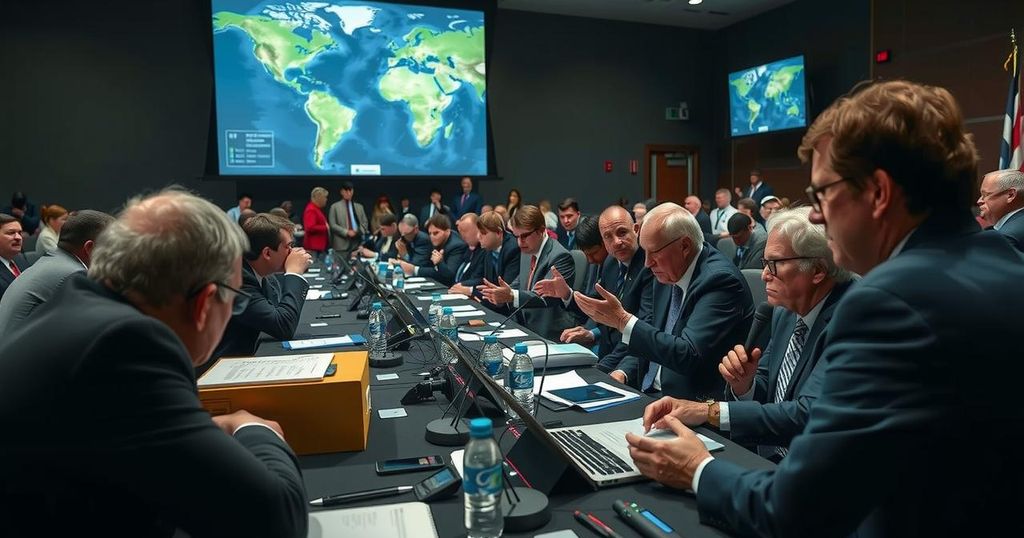COP29 Climate Talks Conclude Amidst Criticism and Discontent

The COP29 climate talks in Baku concluded with significant tension after the agreement on $300 billion annually from wealthy countries to assist poorer regions was met with swift criticism for being insufficient. While the deal was formally adopted, nations like India and Cuba expressed their discontent, stating the figure was too low to effectively combat climate change impacts. Azerbaijan’s handling of the talks also faced scrutiny, overshadowing the supposed triumph of reaching an agreement.
In Baku, Azerbaijan, negotiations at the climate talks culminated in a tense atmosphere characterized by late-night discussions and subsequent outcries following the announcement of a global climate finance agreement. After intensive deliberation, COP President Mukhtar Babayev declared the deal adopted at 3:00 AM on Sunday, which outlined a figure of $300 billion annually from wealthy nations to assist poorer countries impacted by climate change. However, this monetary commitment was promptly criticized by multiple nations, including India and Cuba, for being insufficient.
During the closing proceedings, India’s representative, Chandni Raina, articulated deep disappointment, claiming the agreed amount was “abysmally low” and suggested that the consensus process had been manipulated. Notably, while many delegates celebrated the formalization of the deal, a contingent voiced strong dissent, highlighting the perennial divide between developed and developing nations regarding climate policy and funding.
Moreover, the backdrop of the talks revealed significant tension, reflective of Azerbaijan’s contentious history and its controversial reception of political critiques from the West. Despite these problems, Babayev defended the discussions, stating skepticism surrounding Azerbaijan’s ability to convene successfully had been misplaced. The event concluded with a mixture of approval and denunciation, epitomizing the complex nature of global climate negotiations.
The article revolves around the recent climate talks held in Baku, Azerbaijan, against a backdrop of heightened global temperatures and urgent demands for substantial climate finance. COP29 was marked by persistent negotiations among representatives from various countries, who engaged in heated discussions regarding financial commitments necessary to support nations most vulnerable to climate change consequences. The discourse highlights the ongoing disparities in the expectations of developed vs. developing nations regarding equitable financial contributions and responsibilities in combating climate change.
The climate conference in Baku demonstrated the challenges inherent in international climate negotiations. While a deal on climate finance was finally reached, its reception was overwhelmingly critical among several key nations, reflecting persistent concerns regarding the adequacy of financial commitments. This highlights the complexity of achieving consensus in the climate dialogue, particularly in balancing the interests of wealthier and vulnerable nations facing the realities of climate change.
Original Source: www.rfi.fr






